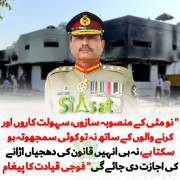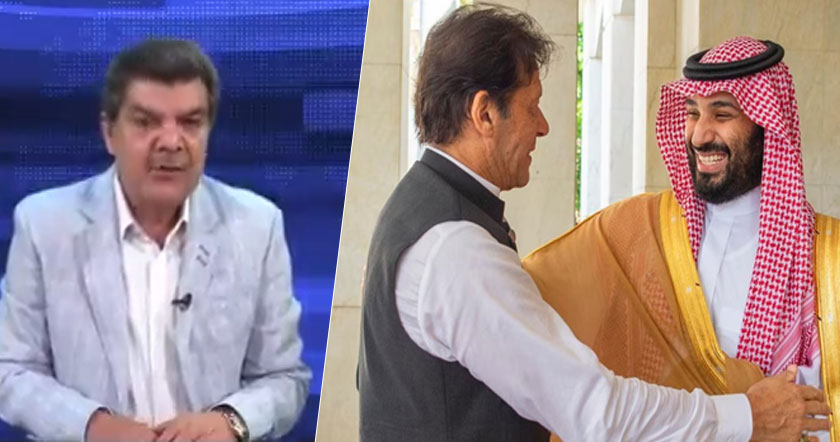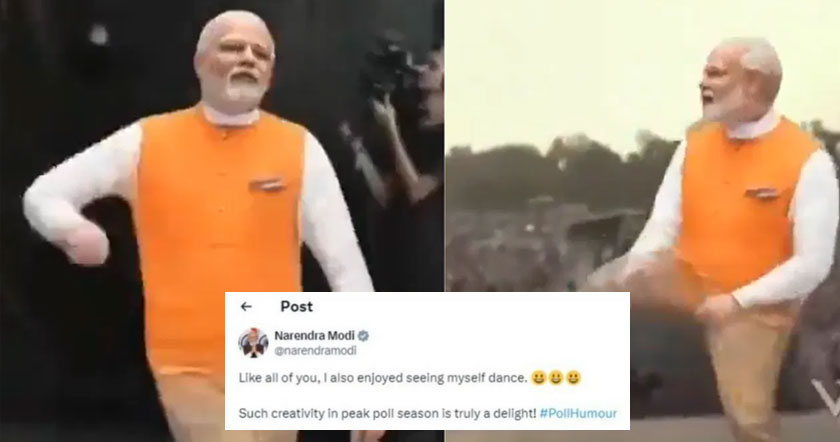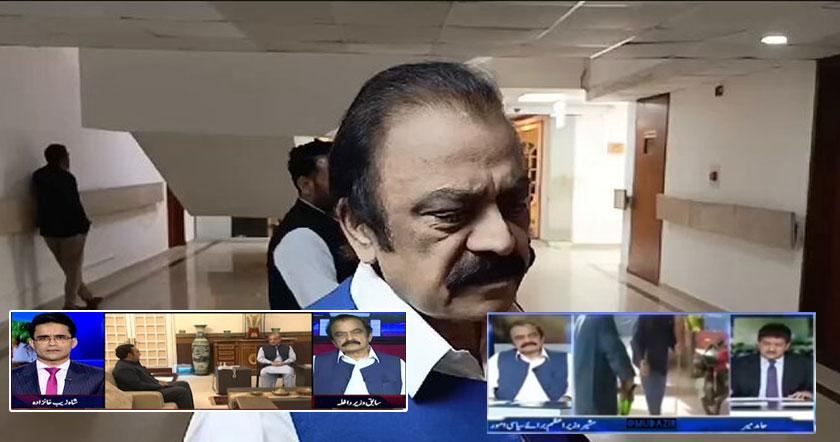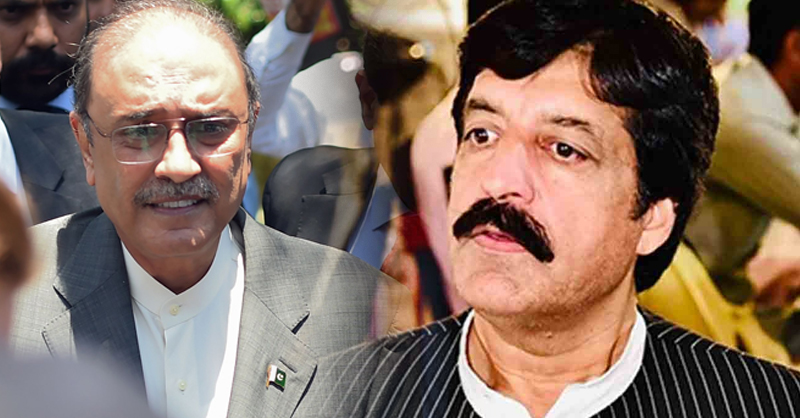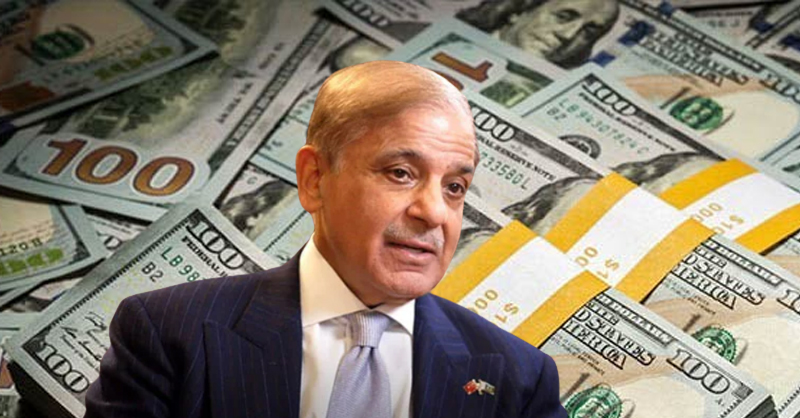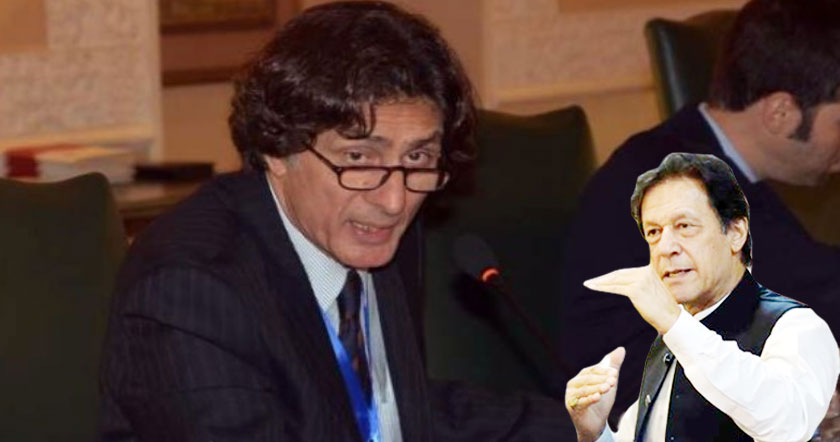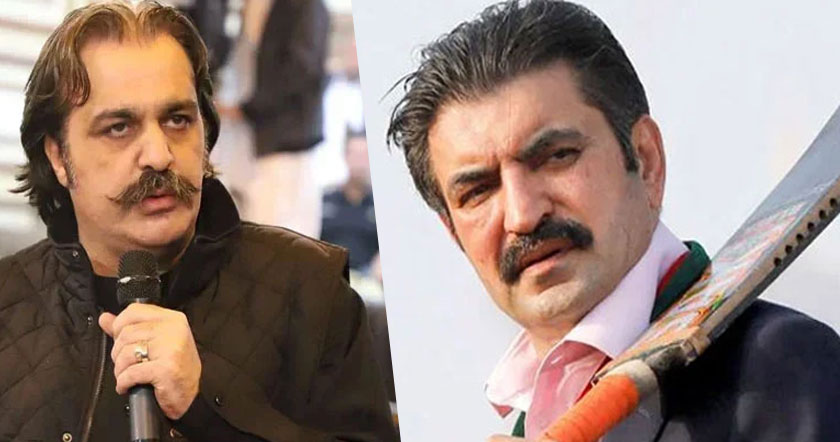[h=1]US prepares for worst-case scenario with Pakistan nukes[/h]By Robert Windrem
NBC News Investigative Producer for Special Projects
As U.S.-Pakistani relations spiral downward, the specter of a showdown between the increasingly antagonistic allies is garnering more attention, including the worst-case scenario of the U.S. attempting to snatch Pakistans 100-plus nuclear weapons if it feared they were about to fall into the wrong hands.
That would be a disastrous miscalculation, former Pakistani President and army chief Pervez Musharraf told NBC News, saying that such an incursion would lead to total confrontation between the United States and Pakistan.
 Ispr / EPA
Ispr / EPA
A Medium Range Ballistic Missile Hatf V (Ghauri) missile takes off during a test fire from an undisclosed location in Pakistan on Dec. 21 in this photo distributed by the Pakistani military. The liquid-fuel missile can carry both conventional and nuclear warheads and has a range of more than 800 miles.
Privately, current and former U.S. officials say that ensuring the security of Pakistans nuclear weapons has long been a high national security priority, even before the Sept. 11 terrorist attacks, and that plans have been drawn up for dealing with worst-case scenarios in Pakistan.
The greatest success of the U.S. war on terrorism the military operation that killed Osama bin Laden in his safehouse in Pakistan in May has fueled the concerns about Pakistans nuclear arsenal, increasing suspicions among U.S. officials that he had support within the ISI, Pakistans intelligence service, and emboldening those in Washington who believe an orchestrated campaign of lightning raids to secure Pakistans nukes could succeed.
Its no secret that the United States has a plan to try to grab Pakistans nuclear weapons -- if and when the president believes they are a threat to either the U.S. or U.S. interests. Among the scenarios seen as most likely: Pakistan plunging into internal chaos, terrorists mounting a serious attack against a nuclear facility, hostilities breaking out with India or Islamic extremists taking charge of the government or the Pakistan army.
In the aftermath of the bin Laden raid, U.S. military officials have testified before Congress about the security of Pakistans nuclear weapons and the threat posed by loose nukes nuclear weapons or materials outside the governments control. And earlier Pentagon reports also outline scenarios in which U.S. forces would intervene to secure nuclear weapons that were in danger of falling into the wrong hands.
But out of fear of further antagonizing an important ally, officials have simultaneously tried to tone down the rhetoric by stressing progress made by Islamabad on the security front.
Such discussions of Pakistans nuclear arsenal, now believed to consist of as many as 115 nuclear bombs and missile warheads, have gotten the attention of current and former Pakistani officials. In an interview with NBC News early this month, Musharraf warned that a snatch-and-grab operation would lead to all-out war between the countries, calling it total confrontation by the whole nation against whoever comes in.
 Michael Thomas / AP
Michael Thomas / AP
Former Pakistani President Pervez Musharraf met with Texas Gov. Rick Perry on July 12 in Austin to exchange ideas about improving the economy and discuss the strained relationship between the U.S. and Pakistani governments. Musharraf has been critical of the White House's recent suspension of $800 million in U.S. aid to the Pakistani military, saying the decreased aid will hurt his country and hinder its fight against terrorism.
advertisement
These are assets which are the pride of Pakistan, assets which are dispersed and very secure in very secure places, guarded by a corps of 18,000 soldiers, said a combative Musharraf, who led Pakistan for nearly a decade and is again running for president. (This) is not an army which doesn't know how to fight. This is an army which has fought three wars. Please understand that.
Pervez Hoodboy, Pakistans best known nuclear physicist and a human rights advocate, rarely agrees with the former president. But he, too, says a U.S. attempt to take control of Pakistans nukes would be foolhardy.
They are said to be hidden in tunnels under mountains, in cities, as well as regular air force and army bases, he said. A U.S. snatch operation could trigger war; it should never be attempted.
Despite such comments, interviews with current and former U.S. officials, military reports and even congressional testimony indicate that Pakistans weaponry has been the subject of continuing discussions, scenarios, war games and possibly even military exercises by U.S. intelligence and special operations forces regarding so-called snatch-and-grab operations.
Its safe to assume that planning for the worst-case scenario regarding Pakistan nukes has ready taken place inside the U.S. government, said Roger Cressey, former deputy director of counterterrorism in the Clinton and Bush White House and an NBC News consultant. This issue remains one of the highest priorities of the U.S. intelligence community ... and the White House.
Carefully worded assurances
Mindful of the growing distrust and suspicions between Washington and Islamabad, U.S. officials have publicly tried to defuse concerns that Pakistans nuclear arsenal could be compromised. Adm. Mike Mullen, chairman of the Joint Chiefs of Staff, told Congress two weeks ago that Pakistans atomic arsenal has become physically more secure and the U.S. has seen training improve for personnel charged with securing the weapons.
But does more secure and improved training mean the Pakistanis have met U.S. standards?
Jeffrey T. Richelson, an intelligence historian, has written extensively about the possibility of a U.S. military operation aimed at Pakistans nuclear arsenal, notably in his 2009 book Defusing Armageddon. The book focuses on the U.S. Nuclear Emergency Search Team (NEST), which might play leading a role in disarming Pakistani weapons along with elements of the Joint Special Operations Command (JSOC).
The nuts-and-bolts of how such an operation would work such as whether teams would attempt to disarm or destroy the weapons remain highly classified.
advertisement
But Richelson notes that without referring to Pakistan by name, Gen. Peter Pace, then-chairman of the Joint Chiefs of Staff, in 2006 discussed two types of operations where in which the U.S. military would seek to keep nuclear weapons out of the hands of al-Qaida or other militants.
Detailed in a military policy document titled National Strategy to Combat Weapons of Mass Destruction, the two scenarios were: elimination operations defined as operations systematically to locate, characterize, secure, disable and/or destroy a State or non-State actors WMD programs and related capabilities and interdiction operations finding and seizing nuclear devices or nuclear material it has been removed from a nations storage bunkers but not yet delivered to a terrorist group.
Richelson also obtained an unclassified PowerPoint presentation titled Detecting, Identifying and Localizing WMD by the Office of Assistant Secretary of Defense for Special Operations and Low-Intensity Conflict (SOLIC). In it were slides referring to clandestine or low-visibility special operations taken to: locate, seize, destroy, capture, recover or render safe WMD, either on land or sea. He said such a mission has been a special operations forces priority since 2002.
Neither the report nor the PowerPoint presentation specify where such operations would be considered, but Richelson says that both were prepared with Pakistan in mind.
The focus on Pakistan, he wrote, is the result of its being both the least stable of the nine nuclear weapons states and the one where there has been significant support for Osama bin Laden and al-Qaida, not only among the general population but also within the military and intelligence forces.
Publicly, U.S. officials dont want to embarrass or infuriate Pakistani officials by suggesting such an operation would be possible, a point brought home in a White House press conference on April 29, 2009. After President Barack Obama spoke of the confidence he had in the Pakistani Armys ability to secure the nuclear weapons, NBC News Chuck Todd began to ask if the U.S. military would step in and seize weapons that were at risk.
Obama quickly cut him off. Im not going to engage in hypotheticals of that sort. I feel confident that nuclear arsenal will remain out of militant hands, OK?
'All nuclear matters are controlled by the army'
While the U.S. has a non-proliferation policy that aims for the elimination of Third World weaponry, it also has been working with Islamabad to minimize the current threat, sending an estimated $100 million to Pakistan since the Sept. 11 terrorist attacks to improve the safety and security of the Pakistani nukes.
advertisement
But Pakistan never permitted U.S. officials to visit the weapons bunkers or see how the U.S.-purchased equipment was working. In fact, Richelson writes, the Pakistanis have gone so far as to set up decoy bunkers to throw off anyone trying to keep track of the arsenal.
And physical security and protection from terrorists only addresses one aspect of the threat, Hoodboy said.
Technology determines safety, but only partly, he told NBC News. Ultimately it depends upon the men who have control over nuclear weapons. Governments come, governments go. But all nuclear matters are controlled by the army. The important question is whether the army has total, absolute control over its nukes. I have no idea whether this control is absolute, and doubt how anyone can know for sure.
There are additional reasons to be concerned. In July 2009, for example, the journal of the Combating Terrorism Center at West Point reported that home-grown terrorists had tried to enter Pakistani nuclear facilities three times between 2007 and 2008, when Pakistan was wracked by rioting and a series of destructive suicide bombings.
Shaun Gregory, director of the Pakistan Security Research Center at the University of Bradford in England, wrote of the attacks.
These have included an attack on the nuclear missile storage facility at Sarghoda on Nov. 1, 2007, an attack on Pakistans nuclear air base at Kamra by a suicide bomber on Dec. 10, 2007, and, perhaps most significantly, the Aug. 20, 2008, attack when Pakistani Taliban suicide bombers blew up several entry points to one of the armament complexes at the Wah cantonment, considered one of Pakistans main nuclear weapons assembly sites.
Pakistani officials have played down the seriousness of such attacks, noting that the attackers were unable to enter what are large military bases, much less penetrate the inner defenses.
Musharraf, who was president of Pakistan during the three reported attacks, dismissed the threat in talking with NBC News. Asked if terrorists were targeting Pakistans nuclear assets, he replied, I don't think so. I don't think they are trying actively to get to our nuclear assets. And we have no such intelligence. Never.
His statement is, at best, a disingenuous and narrow reading of the intelligence, according to former senior U.S. intelligence officials, who like the others quoted in this article spoke on condition of anonymity. These officials point to an August 2001 campfire meeting between bin Laden and his successor, Ayman al Zawahiri, and two Pakistani nuclear scientists, part of a so-called Islamic charity called UTN, on the other. With planning for the 9/11 attacks nearly complete, the two al-Qaida leaders wanted a tutorial on nuclear weapons development, according to U.S. intelligence reports.
advertisement
Tenet's tense meeting
Then-CIA Director George Tenet, in fact, wrote in his memoir, At the Center of the Storm, of a tense discussion he had with Musharraf in Islamabad shortly after the U.S. found out about the meeting.
After a few pleasantries I launched into a description of the campfire meeting between (O)sama bin Laden, al-Zawahiri and the UTN leaders, Tenet wrote. Mr. President, I said, you cannot imagine the outrage there would be in my country if it were learned that Pakistan is coddling scientists who are helping bin Laden acquire a nuclear weapon. Should such a device ever be used, the full fury of the American people would be focused on whoever helped al-Qaida in its cause.
In a testimony before Congress four months ago, the CIAs new director, Gen. David Petraeus, left little doubt the U.S. still fears the worst. There are certainly elements in Pakistan, the Pakistani Taliban and several other varieties of elements who generally have symbiotic relationships, the most extreme of which might, indeed, value access to nuclear weapons or other weapons that could cause enormous loss of life, said Petraeus, then commander of NATO and U.S. forces in Afghanistan.
Like others in the U.S. government, however, Petraeus felt duty bound to note, There is considerable security for the Pakistani nuclear weapons. But he appeared to choose his words with care. Considerable does not mean state of the art, for example.
Not everyone thinks the U.S. is very worried about Pakistans nukes falling into the wrong hands. Zia Mian, a colleague of Hoodboys and director of the Project on Peace and Security in South Asia at Princeton, said war gaming and exercising for dire situations is something the Pentagon and CIA do all the time.
The U.S. exercised global nuclear war. Theyve exercised attacking Iran. Youve got to be ready, Mian argues. It suggests to me there are people whose job is to be worried. So when someone asks you, you say youre worried. But when youre reading the WikiLeaks disclosure, when you read embassy talking points, the nuclear weapons barely figure.
Of course, the main question is if, in the last resort, the U.S. did attempt to snatch Pakistans weapons, would it work? Hoodboy thinks its unlikely to have the intended effect and could very well lead to one of two scenarios, both with potentially disastrous outcomes.
An American attack on Pakistan's nuclear production or storage sites would be extremely dangerous and counterproductive, he said. By comparison the bin Laden operation involved only minor risks. Even if a single Pakistani nuke (out of roughly 100) escapes destruction, that last one could be unimaginably dangerous. Hoodboy added that no seems to have thought through another scenario, one where there is confusion about who snatched the bomb. The situation is more uncertain than even this. For one, it might trigger nuclear war with India, even if India was not involved in the snatch.
NBC News Investigative Producer for Special Projects
As U.S.-Pakistani relations spiral downward, the specter of a showdown between the increasingly antagonistic allies is garnering more attention, including the worst-case scenario of the U.S. attempting to snatch Pakistans 100-plus nuclear weapons if it feared they were about to fall into the wrong hands.
That would be a disastrous miscalculation, former Pakistani President and army chief Pervez Musharraf told NBC News, saying that such an incursion would lead to total confrontation between the United States and Pakistan.

A Medium Range Ballistic Missile Hatf V (Ghauri) missile takes off during a test fire from an undisclosed location in Pakistan on Dec. 21 in this photo distributed by the Pakistani military. The liquid-fuel missile can carry both conventional and nuclear warheads and has a range of more than 800 miles.
Privately, current and former U.S. officials say that ensuring the security of Pakistans nuclear weapons has long been a high national security priority, even before the Sept. 11 terrorist attacks, and that plans have been drawn up for dealing with worst-case scenarios in Pakistan.
The greatest success of the U.S. war on terrorism the military operation that killed Osama bin Laden in his safehouse in Pakistan in May has fueled the concerns about Pakistans nuclear arsenal, increasing suspicions among U.S. officials that he had support within the ISI, Pakistans intelligence service, and emboldening those in Washington who believe an orchestrated campaign of lightning raids to secure Pakistans nukes could succeed.
Its no secret that the United States has a plan to try to grab Pakistans nuclear weapons -- if and when the president believes they are a threat to either the U.S. or U.S. interests. Among the scenarios seen as most likely: Pakistan plunging into internal chaos, terrorists mounting a serious attack against a nuclear facility, hostilities breaking out with India or Islamic extremists taking charge of the government or the Pakistan army.
In the aftermath of the bin Laden raid, U.S. military officials have testified before Congress about the security of Pakistans nuclear weapons and the threat posed by loose nukes nuclear weapons or materials outside the governments control. And earlier Pentagon reports also outline scenarios in which U.S. forces would intervene to secure nuclear weapons that were in danger of falling into the wrong hands.
But out of fear of further antagonizing an important ally, officials have simultaneously tried to tone down the rhetoric by stressing progress made by Islamabad on the security front.
Such discussions of Pakistans nuclear arsenal, now believed to consist of as many as 115 nuclear bombs and missile warheads, have gotten the attention of current and former Pakistani officials. In an interview with NBC News early this month, Musharraf warned that a snatch-and-grab operation would lead to all-out war between the countries, calling it total confrontation by the whole nation against whoever comes in.

Former Pakistani President Pervez Musharraf met with Texas Gov. Rick Perry on July 12 in Austin to exchange ideas about improving the economy and discuss the strained relationship between the U.S. and Pakistani governments. Musharraf has been critical of the White House's recent suspension of $800 million in U.S. aid to the Pakistani military, saying the decreased aid will hurt his country and hinder its fight against terrorism.
advertisement
These are assets which are the pride of Pakistan, assets which are dispersed and very secure in very secure places, guarded by a corps of 18,000 soldiers, said a combative Musharraf, who led Pakistan for nearly a decade and is again running for president. (This) is not an army which doesn't know how to fight. This is an army which has fought three wars. Please understand that.
Pervez Hoodboy, Pakistans best known nuclear physicist and a human rights advocate, rarely agrees with the former president. But he, too, says a U.S. attempt to take control of Pakistans nukes would be foolhardy.
They are said to be hidden in tunnels under mountains, in cities, as well as regular air force and army bases, he said. A U.S. snatch operation could trigger war; it should never be attempted.
Despite such comments, interviews with current and former U.S. officials, military reports and even congressional testimony indicate that Pakistans weaponry has been the subject of continuing discussions, scenarios, war games and possibly even military exercises by U.S. intelligence and special operations forces regarding so-called snatch-and-grab operations.
Its safe to assume that planning for the worst-case scenario regarding Pakistan nukes has ready taken place inside the U.S. government, said Roger Cressey, former deputy director of counterterrorism in the Clinton and Bush White House and an NBC News consultant. This issue remains one of the highest priorities of the U.S. intelligence community ... and the White House.
Carefully worded assurances
Mindful of the growing distrust and suspicions between Washington and Islamabad, U.S. officials have publicly tried to defuse concerns that Pakistans nuclear arsenal could be compromised. Adm. Mike Mullen, chairman of the Joint Chiefs of Staff, told Congress two weeks ago that Pakistans atomic arsenal has become physically more secure and the U.S. has seen training improve for personnel charged with securing the weapons.
But does more secure and improved training mean the Pakistanis have met U.S. standards?
Jeffrey T. Richelson, an intelligence historian, has written extensively about the possibility of a U.S. military operation aimed at Pakistans nuclear arsenal, notably in his 2009 book Defusing Armageddon. The book focuses on the U.S. Nuclear Emergency Search Team (NEST), which might play leading a role in disarming Pakistani weapons along with elements of the Joint Special Operations Command (JSOC).
The nuts-and-bolts of how such an operation would work such as whether teams would attempt to disarm or destroy the weapons remain highly classified.
advertisement
But Richelson notes that without referring to Pakistan by name, Gen. Peter Pace, then-chairman of the Joint Chiefs of Staff, in 2006 discussed two types of operations where in which the U.S. military would seek to keep nuclear weapons out of the hands of al-Qaida or other militants.
Detailed in a military policy document titled National Strategy to Combat Weapons of Mass Destruction, the two scenarios were: elimination operations defined as operations systematically to locate, characterize, secure, disable and/or destroy a State or non-State actors WMD programs and related capabilities and interdiction operations finding and seizing nuclear devices or nuclear material it has been removed from a nations storage bunkers but not yet delivered to a terrorist group.
Richelson also obtained an unclassified PowerPoint presentation titled Detecting, Identifying and Localizing WMD by the Office of Assistant Secretary of Defense for Special Operations and Low-Intensity Conflict (SOLIC). In it were slides referring to clandestine or low-visibility special operations taken to: locate, seize, destroy, capture, recover or render safe WMD, either on land or sea. He said such a mission has been a special operations forces priority since 2002.
Neither the report nor the PowerPoint presentation specify where such operations would be considered, but Richelson says that both were prepared with Pakistan in mind.
The focus on Pakistan, he wrote, is the result of its being both the least stable of the nine nuclear weapons states and the one where there has been significant support for Osama bin Laden and al-Qaida, not only among the general population but also within the military and intelligence forces.
Publicly, U.S. officials dont want to embarrass or infuriate Pakistani officials by suggesting such an operation would be possible, a point brought home in a White House press conference on April 29, 2009. After President Barack Obama spoke of the confidence he had in the Pakistani Armys ability to secure the nuclear weapons, NBC News Chuck Todd began to ask if the U.S. military would step in and seize weapons that were at risk.
Obama quickly cut him off. Im not going to engage in hypotheticals of that sort. I feel confident that nuclear arsenal will remain out of militant hands, OK?
'All nuclear matters are controlled by the army'
While the U.S. has a non-proliferation policy that aims for the elimination of Third World weaponry, it also has been working with Islamabad to minimize the current threat, sending an estimated $100 million to Pakistan since the Sept. 11 terrorist attacks to improve the safety and security of the Pakistani nukes.
advertisement
But Pakistan never permitted U.S. officials to visit the weapons bunkers or see how the U.S.-purchased equipment was working. In fact, Richelson writes, the Pakistanis have gone so far as to set up decoy bunkers to throw off anyone trying to keep track of the arsenal.
And physical security and protection from terrorists only addresses one aspect of the threat, Hoodboy said.
Technology determines safety, but only partly, he told NBC News. Ultimately it depends upon the men who have control over nuclear weapons. Governments come, governments go. But all nuclear matters are controlled by the army. The important question is whether the army has total, absolute control over its nukes. I have no idea whether this control is absolute, and doubt how anyone can know for sure.
There are additional reasons to be concerned. In July 2009, for example, the journal of the Combating Terrorism Center at West Point reported that home-grown terrorists had tried to enter Pakistani nuclear facilities three times between 2007 and 2008, when Pakistan was wracked by rioting and a series of destructive suicide bombings.
Shaun Gregory, director of the Pakistan Security Research Center at the University of Bradford in England, wrote of the attacks.
These have included an attack on the nuclear missile storage facility at Sarghoda on Nov. 1, 2007, an attack on Pakistans nuclear air base at Kamra by a suicide bomber on Dec. 10, 2007, and, perhaps most significantly, the Aug. 20, 2008, attack when Pakistani Taliban suicide bombers blew up several entry points to one of the armament complexes at the Wah cantonment, considered one of Pakistans main nuclear weapons assembly sites.
Pakistani officials have played down the seriousness of such attacks, noting that the attackers were unable to enter what are large military bases, much less penetrate the inner defenses.
Musharraf, who was president of Pakistan during the three reported attacks, dismissed the threat in talking with NBC News. Asked if terrorists were targeting Pakistans nuclear assets, he replied, I don't think so. I don't think they are trying actively to get to our nuclear assets. And we have no such intelligence. Never.
His statement is, at best, a disingenuous and narrow reading of the intelligence, according to former senior U.S. intelligence officials, who like the others quoted in this article spoke on condition of anonymity. These officials point to an August 2001 campfire meeting between bin Laden and his successor, Ayman al Zawahiri, and two Pakistani nuclear scientists, part of a so-called Islamic charity called UTN, on the other. With planning for the 9/11 attacks nearly complete, the two al-Qaida leaders wanted a tutorial on nuclear weapons development, according to U.S. intelligence reports.
advertisement
Tenet's tense meeting
Then-CIA Director George Tenet, in fact, wrote in his memoir, At the Center of the Storm, of a tense discussion he had with Musharraf in Islamabad shortly after the U.S. found out about the meeting.
After a few pleasantries I launched into a description of the campfire meeting between (O)sama bin Laden, al-Zawahiri and the UTN leaders, Tenet wrote. Mr. President, I said, you cannot imagine the outrage there would be in my country if it were learned that Pakistan is coddling scientists who are helping bin Laden acquire a nuclear weapon. Should such a device ever be used, the full fury of the American people would be focused on whoever helped al-Qaida in its cause.
In a testimony before Congress four months ago, the CIAs new director, Gen. David Petraeus, left little doubt the U.S. still fears the worst. There are certainly elements in Pakistan, the Pakistani Taliban and several other varieties of elements who generally have symbiotic relationships, the most extreme of which might, indeed, value access to nuclear weapons or other weapons that could cause enormous loss of life, said Petraeus, then commander of NATO and U.S. forces in Afghanistan.
Like others in the U.S. government, however, Petraeus felt duty bound to note, There is considerable security for the Pakistani nuclear weapons. But he appeared to choose his words with care. Considerable does not mean state of the art, for example.
Not everyone thinks the U.S. is very worried about Pakistans nukes falling into the wrong hands. Zia Mian, a colleague of Hoodboys and director of the Project on Peace and Security in South Asia at Princeton, said war gaming and exercising for dire situations is something the Pentagon and CIA do all the time.
The U.S. exercised global nuclear war. Theyve exercised attacking Iran. Youve got to be ready, Mian argues. It suggests to me there are people whose job is to be worried. So when someone asks you, you say youre worried. But when youre reading the WikiLeaks disclosure, when you read embassy talking points, the nuclear weapons barely figure.
Of course, the main question is if, in the last resort, the U.S. did attempt to snatch Pakistans weapons, would it work? Hoodboy thinks its unlikely to have the intended effect and could very well lead to one of two scenarios, both with potentially disastrous outcomes.
An American attack on Pakistan's nuclear production or storage sites would be extremely dangerous and counterproductive, he said. By comparison the bin Laden operation involved only minor risks. Even if a single Pakistani nuke (out of roughly 100) escapes destruction, that last one could be unimaginably dangerous. Hoodboy added that no seems to have thought through another scenario, one where there is confusion about who snatched the bomb. The situation is more uncertain than even this. For one, it might trigger nuclear war with India, even if India was not involved in the snatch.





